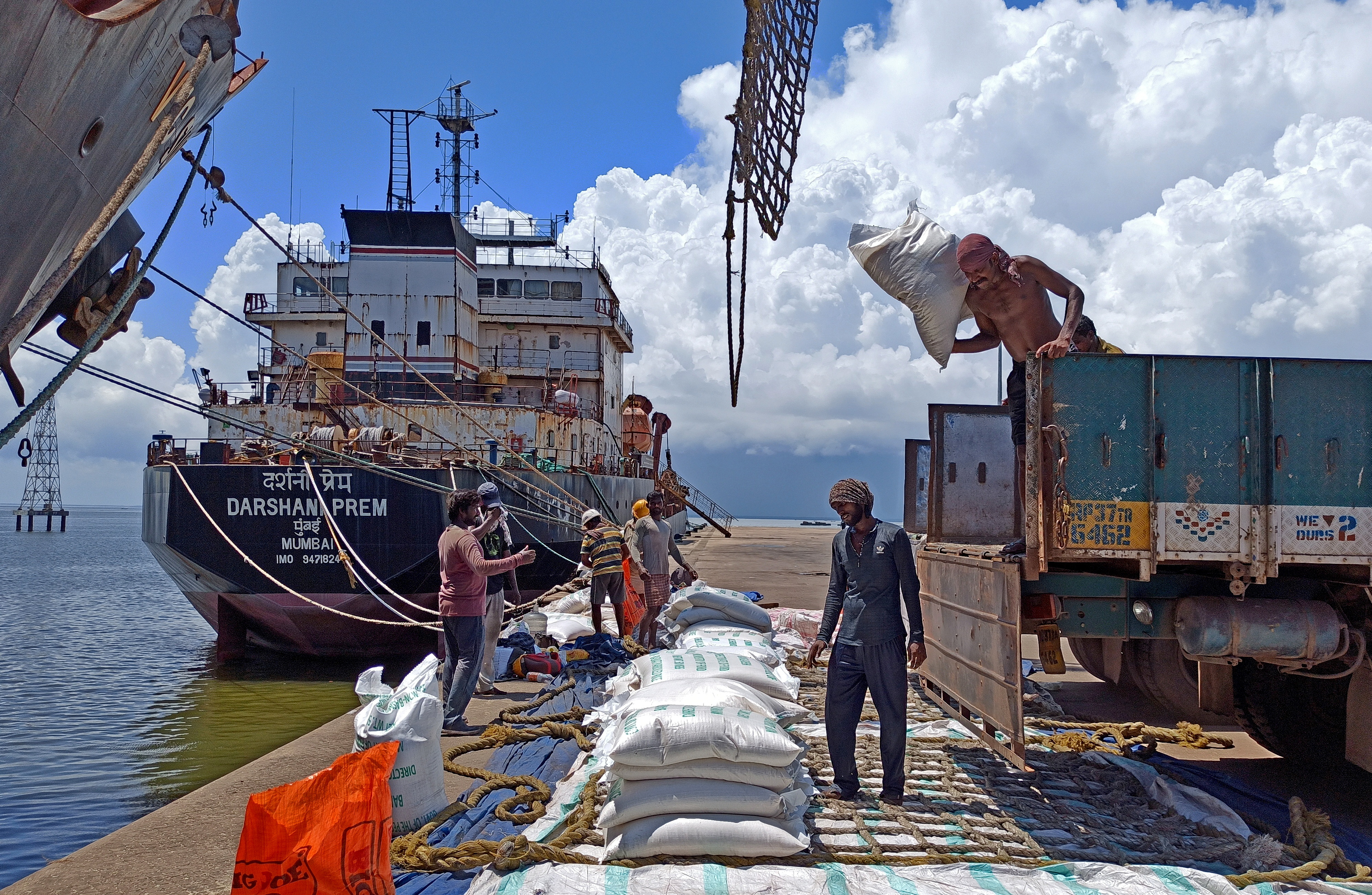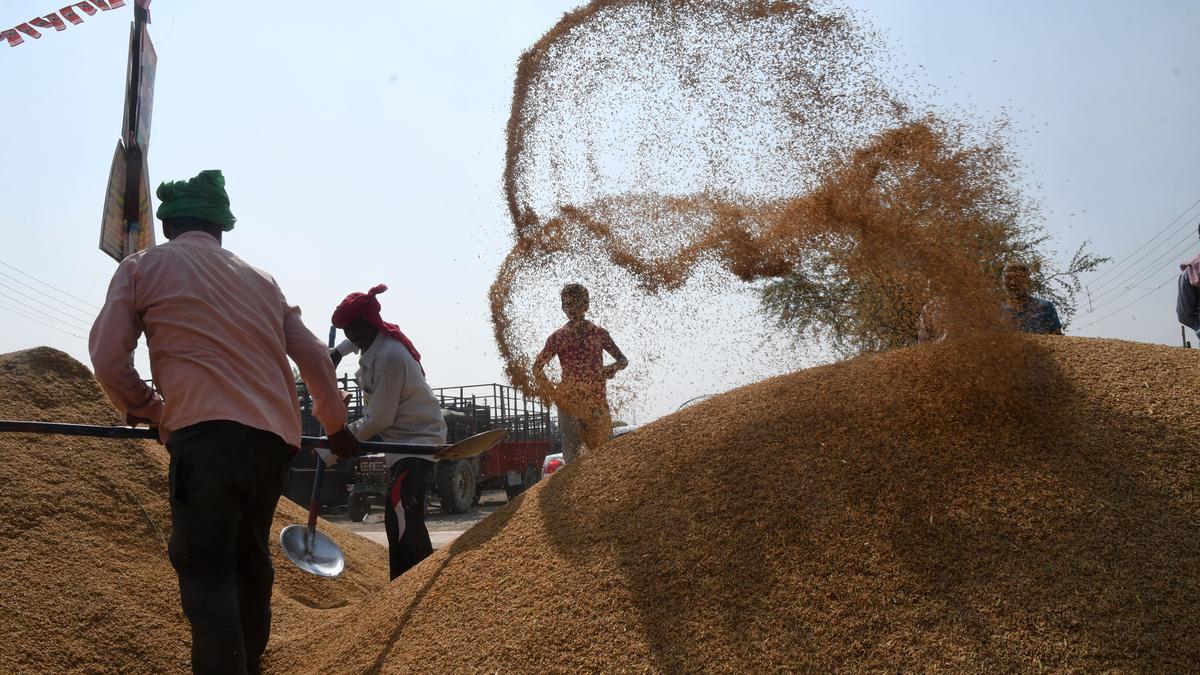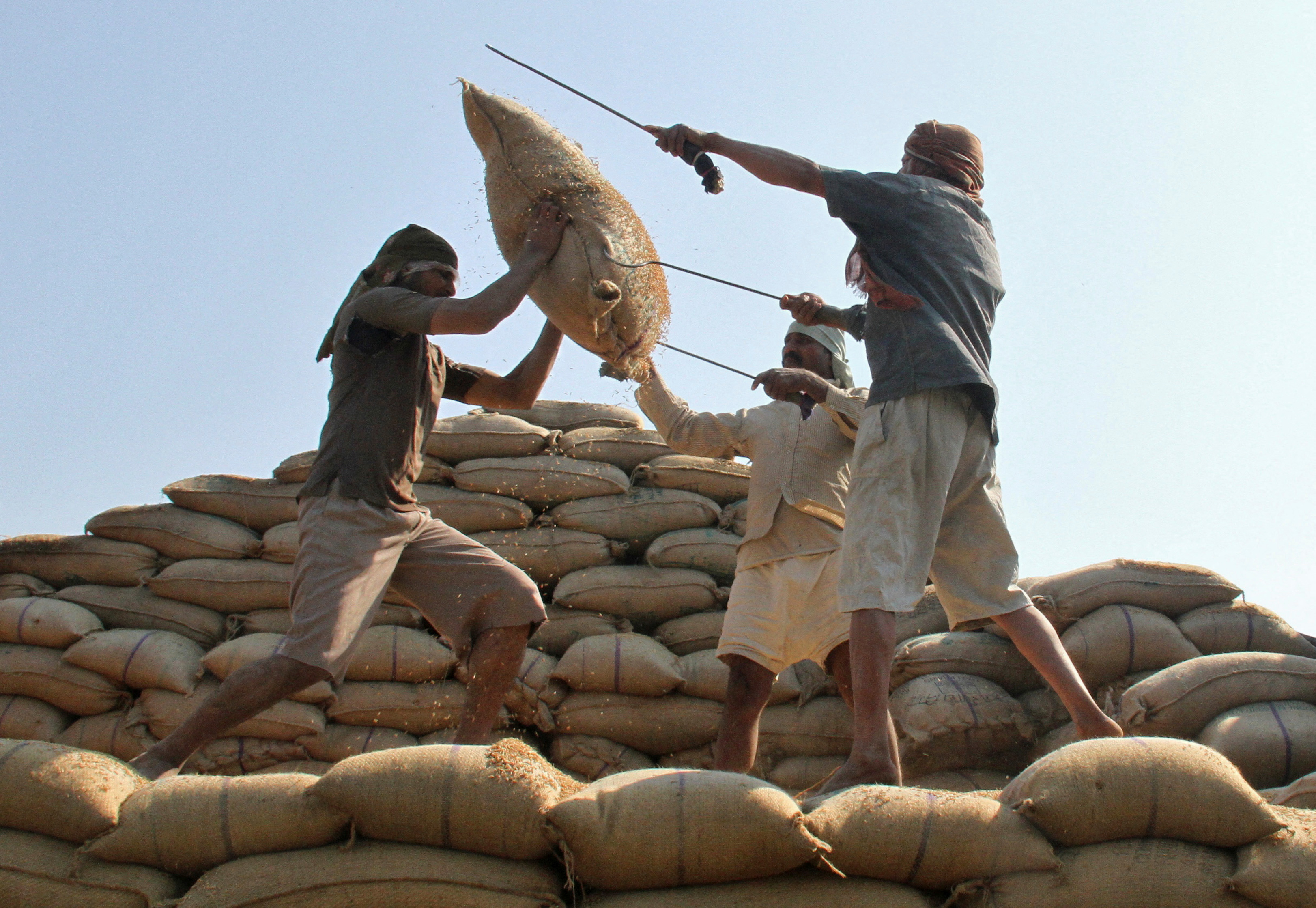Basmati Rice Shipments Below $1,200 per Tonne Put On Hold

Basmati Rice Shipments Below $1,200 per Tonne Put On Hold
The government has banned all exports of basmati rice under $ 1200 per tonne until October 15 after imposing a 20% export levy on parboiled rice late on Friday.
A minimum export price (MEP) for basmati rice and an export tax on parboiled rice until mid-October are being implemented so that the government has time to estimate the yield of kharif rice in 2023–2024.

The government has recently implemented a number of policies aimed at ensuring adequate supplies and reducing food inflation. These policies include a ban on the export of white rice, the imposition of a 40% export duty on onions, the elimination of import taxes on some types of pulses, and the sale of foodgrains on the open market. In order to lower prices, Food Corporation of India plans to sell 2.5 MT of rice this year.
Inflation in food reached a 10-month high of 11.51% in July, driven mostly by increases in the cost of vegetables, grains, and pulses.
Following the ban on shipments of white rice last month, indications that non-basmati rice consignments had been delivered under the categories of “basmati” and “parboiled” rice prompted the decision to temporarily impose an MEP on shipments of aromatic rice, according to official sources.
In comparison to the same period last year, rice exports in the current fiscal have increased by more than 15% to 7.33 million tonne (MT).
An official from the commerce ministry stated, “We have asked Agricultural and Processed Exports Development Authority (APEDA) not to register any shipment below this price,” pointing out that the average export price of basmati rice in August was above $1200/tonne.

“There has been large variation in the contract price of basmati being exported with the lowest contract price being $ 359/tonne in backdrop of the average export price of $ 1,214/tonne during the current month,” said a statement from the commerce ministry on Sunday. According to the ministry, it has received reliable field reports on the misclassification and unauthorised export of non-basmati white rice, the export of which was prohibited beginning on July 20, 2023.
APEDA, which keeps track of basmati rice exports, has ceased giving exporters registration -cum- allocation certificates, according to a representative of the All India Rice Exporters Association.
Paddy transplanting is currently rising 4.4% year over year (y-o-y) and is largely finished. The standing crop has been damaged by floods in some sections of Punjab and a lack of rainfall in eastern regions, despite rice having been transplanted on 38.4 million hectares, or nearly 96% of the typical seeded area.
Retail rice prices increased by 12.96% in July after beginning the year with double-digit increases. In an effort to increase domestic supply, India banned the export of broken rice in September 2017 and levied a 20% export levy on non-basmati and non-parboiled rice.

In the first quarter of the current fiscal year, India exported 1.17 MT of basmati rice for $ 1.29 billion, up 12.1% in value over the corresponding time the previous year. In April through June of 2023–24, the average cost of aromatic rice shipments was $1107 per tonne.
The nation exported 4.56 MT of basmati rice in the preceding fiscal, valued at $4.78 billion, at an average cost of $1,050 per tonne.
Since 2012, India has dominated the global rice trade, accounting for more than 40% of all rice exports. The company exports rice to more than 100 nations. In 2022–2023, the nation exported a record 22.22 MT of rice valued at $ 11 billion, outpacing competitors like Vietnam, Thailand, and Pakistan by offering rice at a lower price.
International rice prices have also been steadily increasing since last year due to a combination of factors, including a high demand from Asian consumers, production interruptions in key producing nations like Thailand last year, and worries about the negative repercussions of the beginning of El Nino.
The Food and Agriculture Organization’s (FAO) rice price index surpassed September 2011’s peak of 129.7 points in July 2023 year over year.
In a recent and surprising move, Basmati rice exports below $1,200 per tonne have been put on hold. The decision has sent ripples across the international trade community, affecting exporters, distributors, and consumers alike. This article aims to explore the reasons behind this move, its implications, and the possible future trajectory of this industry.

Basmati rice, a variety of long-grain rice with a distinct aroma and flavor, is primarily cultivated in India and Pakistan. It is a vital export item for both countries, making up a significant portion of their agricultural exports. Historically, prices for Basmati rice have been relatively stable, making it an attractive commodity for long-term trading contracts.
The abrupt decision to put on hold all shipments of Basmati rice valued below $1,200 per tonne has raised concerns across multiple sectors. The decision was not part of a gradual policy shift but was implemented almost overnight, leaving many stakeholders scrambling to adapt. While the authorities have cited quality control and the preservation of brand value as reasons for this move, the decision has also been met with skepticism and criticism.
One of the primary reasons cited for the decision is the government’s desire to improve the overall quality of Basmati rice being exported. Shipments below $1,200 per tonne have often been found to be of lesser quality, thereby affecting the brand image of Basmati rice globally.
With the increasing costs of production, including labor and raw materials, it has become challenging for exporters to maintain high-quality Basmati rice at low prices. The decision aims to allow growers and exporters to focus on quality rather than quantity.
There is speculation that the decision might also be influenced by geopolitical tensions and trade wars. By controlling the price of a significant export item like Basmati rice, the government can potentially exert pressure on the international community.
The immediate impact has been a halt in low-value shipments, creating a backlog of stock. Many exporters face financial strain as they adapt to the new pricing regulations.On the consumer end, this decision is expected to lead to a price hike in Basmati rice. Lower-income families who rely on more affordable varieties will be most affected.

By putting a minimum price on Basmati rice exports, it’s likely that trade partners will look for alternative suppliers, thereby affecting the export market’s long-term stability.
While the authorities have put this decision in place with the aim of enhancing the quality of Basmati rice exports, it is too early to determine the long-term effects. Stakeholders at every level are watching closely to see how the situation unfolds. There may be policy revisions based on the feedback and the real-world impact of this decision.

The decision to halt Basmati rice shipments below $1,200 per tonne is a complex issue with multiple facets. While aiming to protect the quality and brand value of this prized commodity, it also presents challenges and uncertainties for exporters, consumers, and the global trade community. Only time will tell whether the decision will serve its intended purpose or require further adjustments.




